Objections to pylons plan for 'Sunset Song' land
- Published
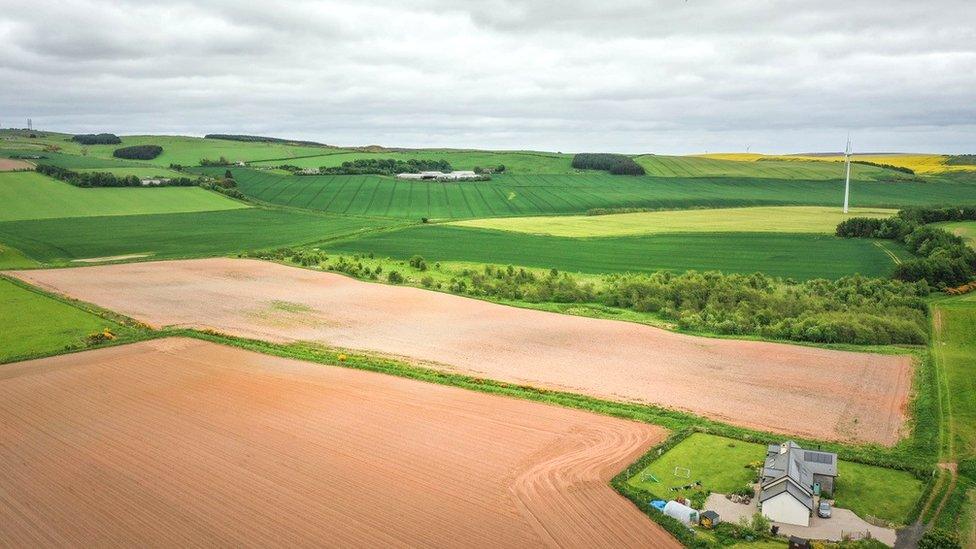
Locals in the Mearns area are objecting about the potential impact on the environment
Campaigners are fighting plans to build pylons through the landscape at the heart of the classic novel Sunset Song.
SSEN is consulting on the development of its East Coast 400kV project which is set to feature overhead lines between the villages of Kintore in Aberdeenshire and Tealing in Angus.
The company says it is needed to help meet climate change and energy security targets.
However locals are objecting on both environmental and cultural grounds.
Sunset Song is one of Scotland's best-loved novels.
Published in 1932, Lewis Grassic Gibbon's tale follows a farming family struggling to make a living in the north east of Scotland leading up to World War One.
It was named Best Scottish Book of All Time at the Edinburgh International Book Festival in 2005.
Sunset Song has been adapted as a TV series and a film.
Shona Alexander and her husband John, who have run a farm in Fordoun for more than 30 years, say they may be left with no choice but to move if the project goes ahead in its current form.
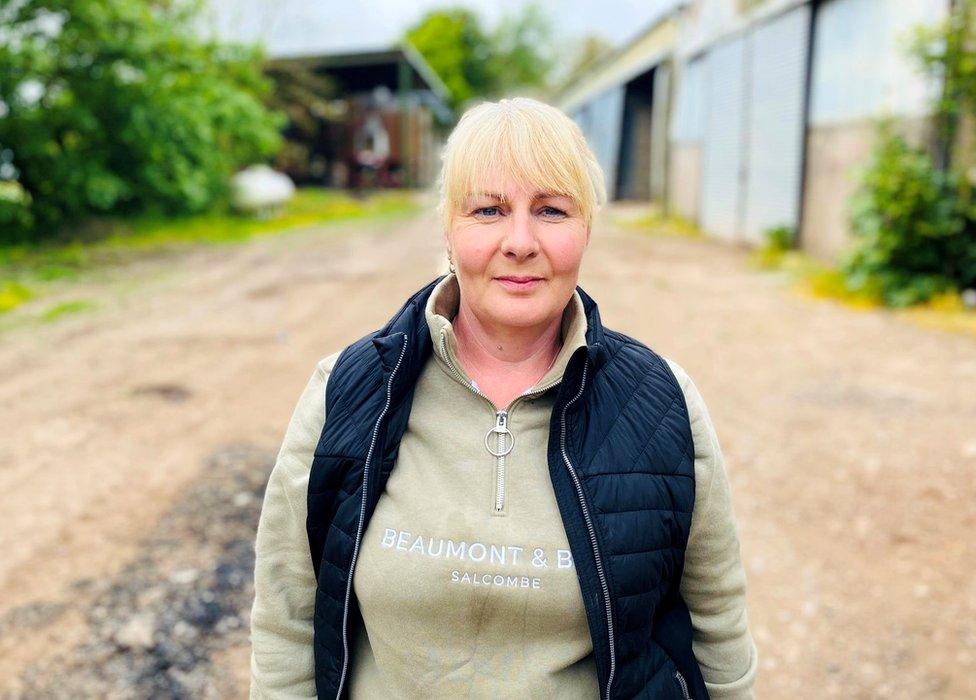
Shona Alexander fears having to move
Mrs Alexander said they were first approached at the beginning of the year and told there was the possibility of a five acre substation on their land.
"I think it was January when somebody first came out and spoke to my husband," she said. "Then he came back out a short time later and it had grown to 60 acres and then we heard from our neighbours that it was actually going to be 120 acres.
"I was horrified. It's on our doorstep and goes right through the heart of the Mearns. I think it's going to make our house uninhabitable due to the noise and the vibrations.
"When the work is going ahead, a thing of that size is going to have a lot of traffic coming and going. It's going to take away a large part of our farm so we'll have less crops to grow and less profit."
She added: "My husband is older now so it's not like we can just uproot and move somewhere else.
"We don't want to at this age, we are looking forward to retiring and now this is happening we don't know what we are going to do."
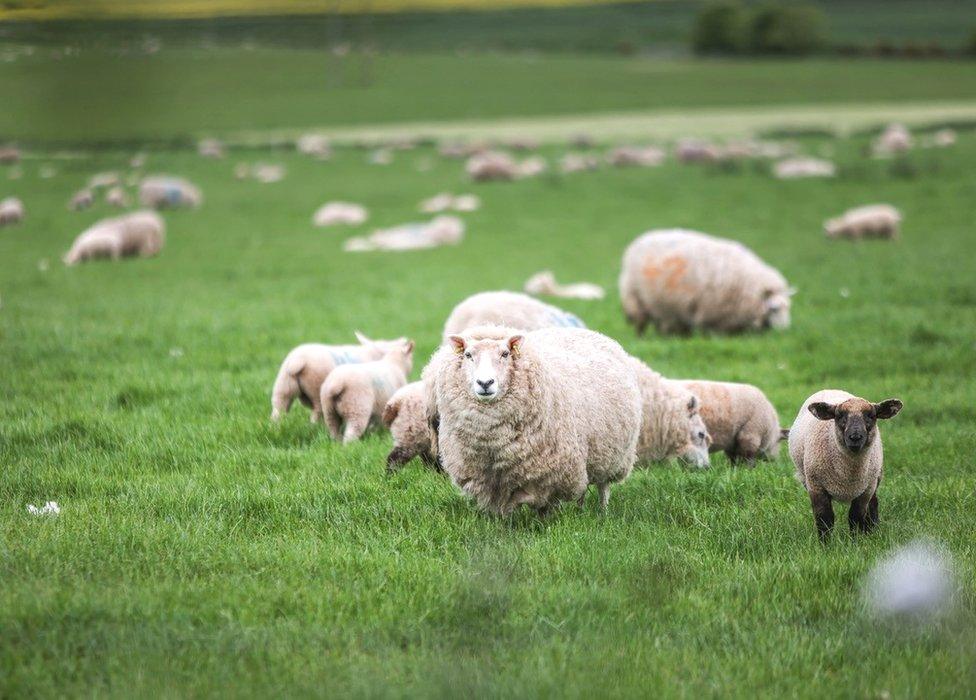
The area is home to many farms
Tracey Smith said she learned last month that her Fordoun home fell on SSEN's preferred route for the East Coast 400kV line.
"We were absolutely shocked, we had sleepless nights, nothing else was in our heads other than what's happening here," the co-founder of the Save Our Mearns campaign said.
"We want to live here for the rest of our lives, we wanted to convert a steading, my son loves coming here on holiday. This is home for us.
"The consultation process by SSEN was very cloak and dagger, very quiet, we found out that there weren't a lot of people in the community who knew it was going ahead. They didn't know the route and they didn't know the reason."
She added: "We are all for net zero, we are quite happy with that and we have no objections. We just don't want overhead pylons.
"We realise that as time moves on that there does need to be an improvement in infrastructure but it doesn't necessarily have to be 65 miles of overhead lines running through a beautiful area."
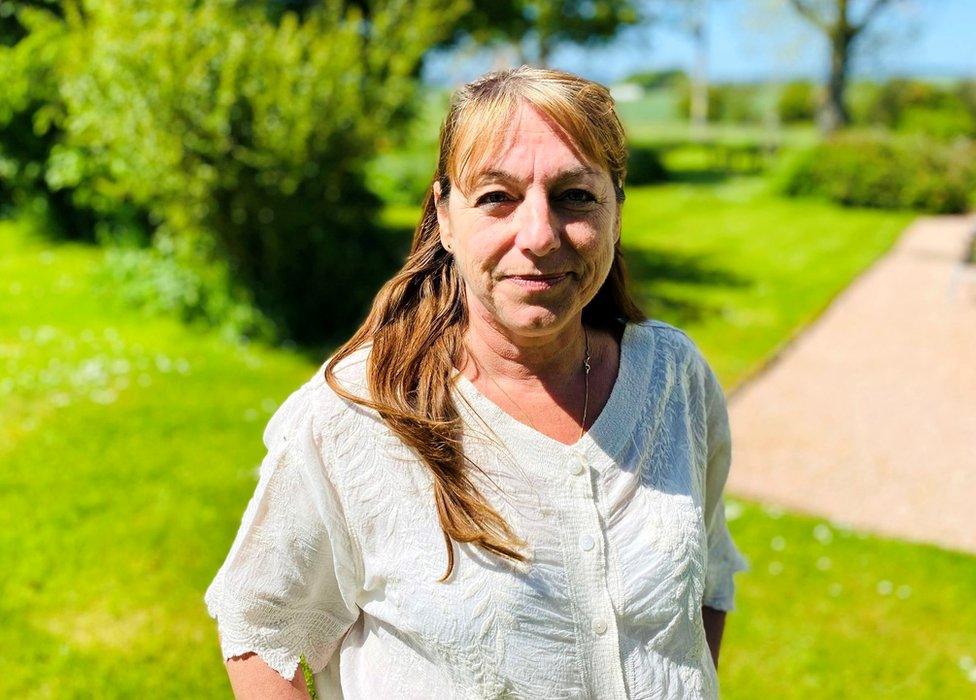
Tracey Smith co-founded the Save Our Mearns campaign
Greg Clarke, head of corporate affairs for SSEN Transmission, said: "These projects are part of a major upgrade of the electricity transmission system that are required to deliver our climate change and energy security targets.
"We're still at the very early stages of developing these projects and we are consulting extensively with communities across the north of Scotland and we'll continue to do so to develop these projects in such a way that tries to minimise and mitigate impacts.
"It is likely that the significant proportion of this infrastructure will be overhead steel lattice towers but there may be sections of undergrounding that we look at where there are landscape and visual impact assessments that justify that technology."
Mr Clarke explained: "We will look to do everything that we possibly can to reach voluntary agreements and build support for our projects with landowners and with local communities.
"In the event that we are unable to reach a voluntary agreement, after exhausting all options, then we do have the ability to undertake compulsory purchase orders.
"We would like to reassure everybody that that is only ever taken as an absolute last resort, once we have exhausted all other options, to deliver this critical national infrastructure that is required if we are to meet our climate change and energy security targets."
Related topics
- Published17 May 2023
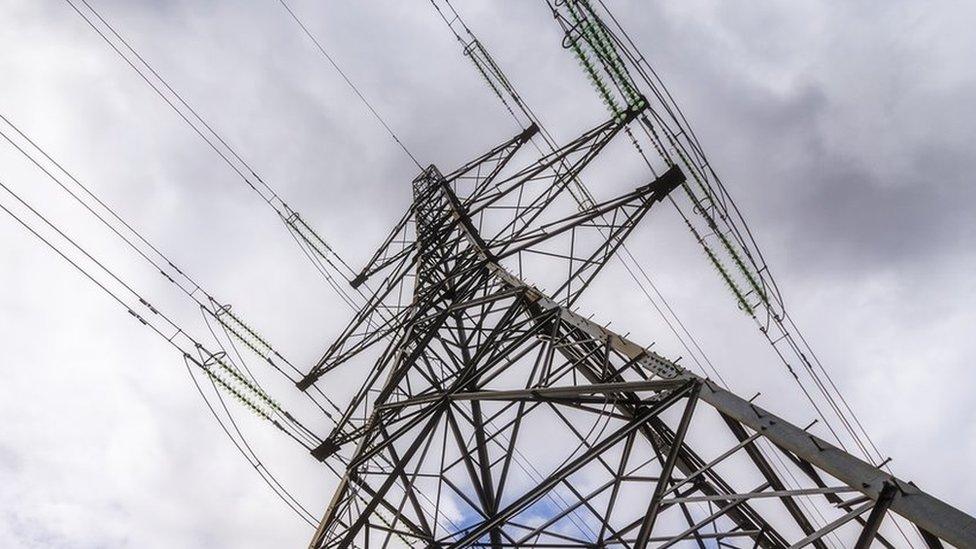
- Published2 September 2015
